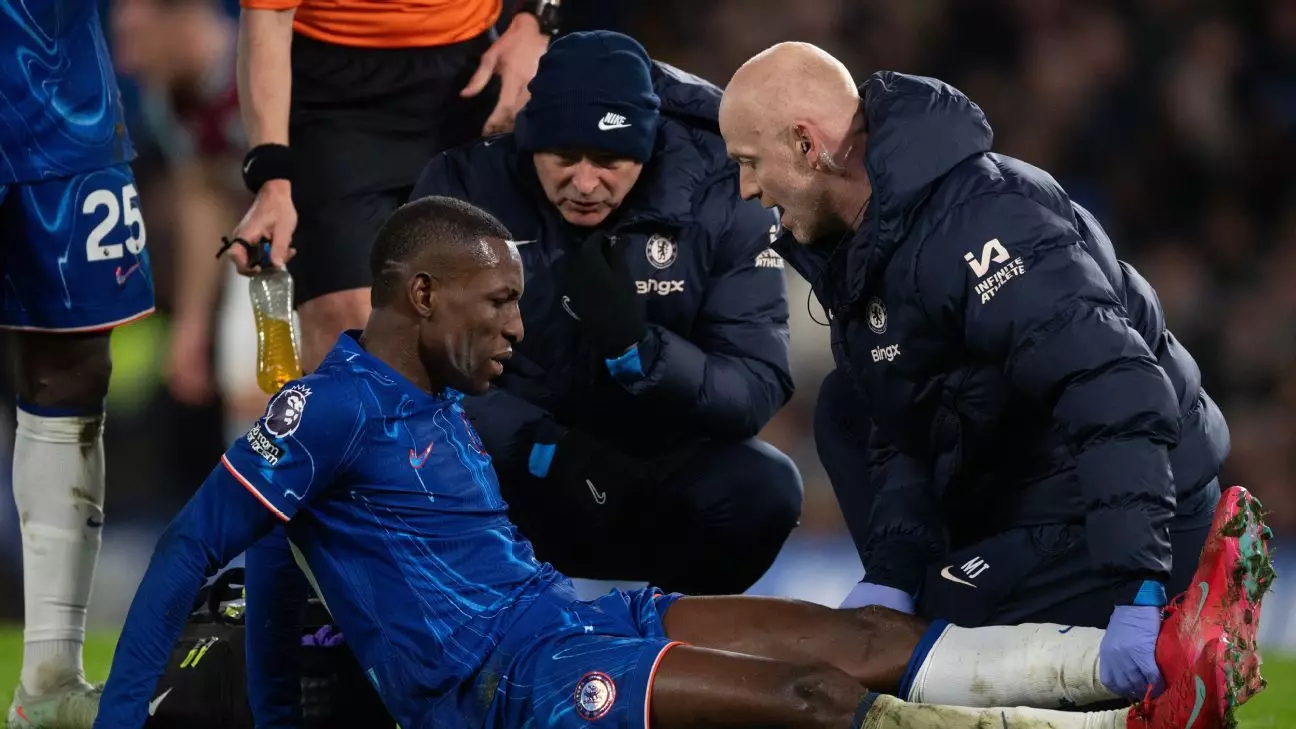Chelsea Football Club’s recent injury woes have reached a new low with manager Enzo Maresca confirming that forward Nicolas Jackson will be out of action until April due to a hamstring injury. The incident, which transpired during a match with West Ham on February 3rd, initially suggested a minor concern, but subsequent scans indicated a more serious issue. Maresca did not mince words when he relayed the news, stating, “Nico will be out until the international break, probably available after.” This pronouncement reflects the harsh reality of professional football, where player fitness can pivot dramatically from optimism to despair within a matter of days.
Jackson’s absence looms large over Chelsea, as he has been a key contributor this season with nine goals in 24 appearances. Despite facing criticism for his inefficiency in front of goal, his absence against Brighton in the FA Cup highlighted his importance to the squad. The team’s lack of a focal point in attack became painfully evident, raising questions about the depth and viability of Chelsea’s current squad.
In light of Jackson’s injury, Maresca is confronted with the task of reconfiguring his attacking strategies. He is now faced with some difficult choices, whether to deploy Cole Palmer as a false nine or to experiment with other options, such as repositioning winger Christopher Nkunku into a central forward role. Nkunku, who has expressed a desire to leave Chelsea for Bayern Munich, adds a layer of complexity to this situation. His connection with Chelsea’s new dynamics remains uncertain. Maresca has to make swift decisions that can have lasting impacts on both player morale and club performance.
The decision-making process is further complicated by the ongoing pressure from external critics and fans who have questioned Jackson’s scoring abilities. While Maresca has defended Jackson, emphasizing his significance both on and off the pitch, the fans’ frustration confirms that they may have underestimated the value of a key forward even if he isn’t firing on all cylinders.
Maresca’s tactical decisions extend beyond the attack as he has also swapped Robert Sánchez for Filip Jørgensen as Chelsea’s first-choice goalkeeper. This change follows Sánchez’s string of high-profile mistakes, culminating in a disastrous performance against Manchester City. Cheering for change, fans are hopeful that Jørgensen’s recent selection will bring stability to a position that has seen its fair share of drama.
Maresca’s statement about the goalkeeping situation – “the idea is not game-by-game to change the keeper” – indicates a move towards a more settled first-team line-up. His trust in Jørgensen’s abilities seems resolute; after all, he witnessed the goalkeeper’s performance in Chelsea’s previous victory against West Ham. However, Sánchez remains a factor in this evolving scenario, and the pressure is on for both players to step up in a challenging environment.
Outlook and Future Prospects
Chelsea’s struggles extend beyond injuries; they reflect a deeper issue that has plagued the club for some time, including inconsistency and an inability to close games effectively. The upcoming fixture against Brighton in the league presents an essential opportunity for recovery. With a squad that is still managing various injuries—including the likes of Romeo Lavia and Benoît Badiashile—depth may ultimately dictate Chelsea’s fortunes in this busy period.
In the coming weeks, Maresca’s management will be put to the test, and how he navigates these challenges could either lay a foundation for future success or signal further struggles for the club.
As preparations continue with matches on the horizon, the importance of cohesion, adaptation, and resilience will be paramount for Chelsea as they strive to reclaim their standing in the league amidst increasing pressure.

